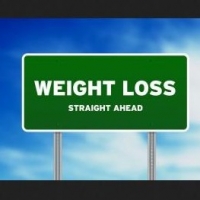Lose Weight > Weight Loss Tips > Weight Loss Articles > Disturbing New Study About Obesity And Weight Loss
Disturbing New Study About Obesity And Weight Loss
What would you be willing to sacrifice if it ensured you would never be fat?
Would you give up a year of your life? Or 10 years?
Would you rather be divorced, unable to have children, depressed, alcoholic?
A disturbing new study out of Yale University's Rudd Center for Food Policy and Obesity found that nearly half -- 46 percent -- of 4,283 participants would rather give up a year of their life than be obese. Fifteen percent were willing to give up 10 years.
In fact, a surprisingly large number of participants were willing to make extreme sacrifices if they could be sure they would never be obese.
These are hypothetical questions, of course, and the answers are not set in stone. Obesity is a killer, so some participants probably figured that they were going to die earlier anyway if they were obese, but what surprised the researchers was the number of people who were willing to make extreme sacrifices.
"The percentages of people willing to make extreme sacrifices were much lower," said psychologist Marlene Schwartz, associate director of the center and lead author in a report in the journal Obesity. "But what struck me was given how big our sample size was, there's still a significant number of people who would give up a lot in order not to be obese."
More than 600 persons, for example, were willing to give up 10 years of their life. And, 342 said they would rather have a learning-disabled child than an obese child.
The findings show the enormous stigma placed on being fat, and that, Schwartz says, is one of the major reasons why some people just can't take it off.
One part of the online study examined subconscious attitudes toward obesity and found that across the board, regardless of age or body weight of the participants, "individuals more strongly associated fat people with bad and thin people with good," the report said.
Fat people are seen as lazy and unwilling to try hard enough to lose weight.
That, Schwartz says, is a big part of the problem. Even overweight participants in the study thought poorly of themselves, and once that level of self-condemnation is reached, it becomes nearly impossible to lose weight.
"Children are constantly given the message, 'You're fat because you're lazy,' " Schwartz said, 'and you're not trying hard enough.' That child is going to internalize that message. And once somebody believes that about themselves, it's going to get harder rather than easier for them to do the hard work that it takes to really fight obesity and be healthy."
It's not that all those fat people out there aren't trying.
"I think people do try, but it's extremely difficult to lose weight and keep it off," she said.
Obesity, of course, can have many causes. Medical conditions,
genetics and lifestyle all play a part, but researchers contend that in many cases the remedy may be beyond the victim's reach.
"Part of the problem is we view obesity as something that's under the person's control, and we blame the individual for having the problem," she said. "But I think people overestimate how much control we have over our body's shape and weight. Therefore when someone is fat, we immediately assume they don't care enough to try to lose weight. They are to blame for being overweight."
Of course, sometimes that's true, and sometimes it's not.
In our current environment, she notes, it's particularly difficult to keep those extra pounds off. Junk food is everywhere, urban sprawl forces us to drive instead of walk, diets fail, and we get discouraged. So we settle down to watch a ball game on television, surrounded by comfort food.
It's enough to make a body give up, and that, Schwartz says, is exactly what is happening. That doesn't mean there's nothing that can help. Lifestyle changes make a difference, she says, and if people can take steps to become more physically active, and more careful about what they eat, then some of those pounds can probably come off.
First, she insists, we've got to change our attitudes about obesity.
"For there to be a change, we have to stop blaming the individual," Schwartz said. "We've been blaming people for a long time and it's not working. So we need to do something else, and what I would suggest is focus on the environment, clean up the environment and make it so that every time you turn around there's a healthy food option and it's hard to find junk food. Change our environment so that it's easy to walk and it's easy to get physical activity in your everyday life."
"I just don't think yelling more at people is going to get us anywhere," she said.
Given prevailing attitudes about being overweight, though, change is not likely to come quickly or easily.
The study, also by Lenny R. Vartanian and Kelly D. Brownell of Yale and Brian A. Nosek of the University of Virginia, reveals strong bias against people who are fat, and that occurs across all ages and body shapes.
Of the 4,283 participants, 30 percent (1,285) said they would rather be divorced than obese, 25 percent (1,070) said they would rather be unable to have children, 15 percent (642) said they would rather be severely depressed, and 14 percent (600) said they would rather be alcoholic.
Most drew the line at some sacrifices, but 10 percent (428) said they would rather have an anorexic child than an obese child, and 8 percent (342) said they would rather have a learning-disabled child than an obese child.
That level of stigmatism drives some toward depression, which can lead to eating disorders, which only worsens the problem.
Copyright 2006 OurFamilysHealth.com
Related Articles
-
Change The Way You Think And Get Rid Of Fat
You hate watching your own body in the mirror. This for sure is inf
-
Quickest Way To Lose Weight
Youre actually among the millions of people around the world doubting
-
Healthy recipes for weight loss to make in a short time
When it comes to healthy recipes for weight loss, many peop
-
If We Are Eating 99% Fat Free, Why Are We 99% Fat?!
Unfortunately, obesity is reaching epidemic proporti
-
Things to Consider When Buying Weigh Loss Pills
Nowadays, the advance technology that the society has promotes poor
-
Advalean for Weight Loss
Many people search high and low for a ... weight loss progr
- DON'T MISS
- Lose Weight Online By Burning Body Fat
- Calories Needed To Lose Weight-Great New Discovery Helps You Lose Weight
- Raspberry Ketones – What This Berry Extract Can Mean for Your Health and Weight-Loss Regimen
- Find The Right Weight Loss Centre In Renton
- How To Lose 52 Pounds - Learn The Fast Fat Reduction Techniques That Work Best!
- 5 Healthy New Years Resolutions
- How Liquid Calories May Be Making You Fat... Even Your Favorite Protein Drinks!
- Diet Solution Program Scam
- Need Help With Weight Loss? Try These Ideas.
- How To Lose 90 Pounds - When You Try This Fat Loss Meal Plan That Will Transform Your Metabolism!




